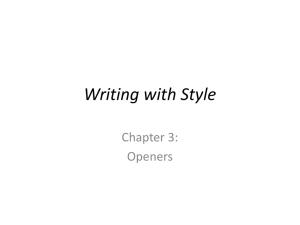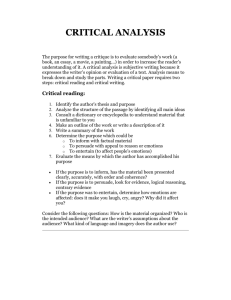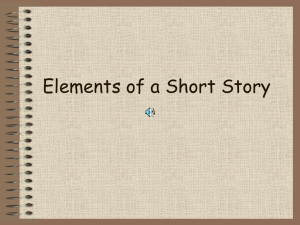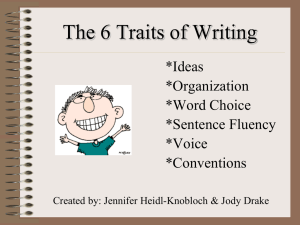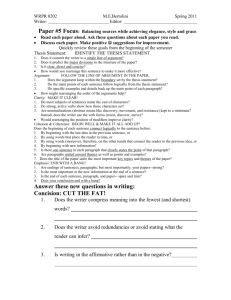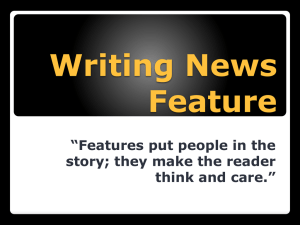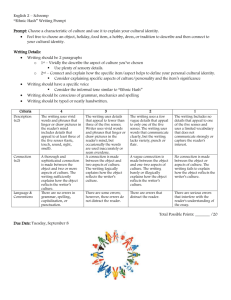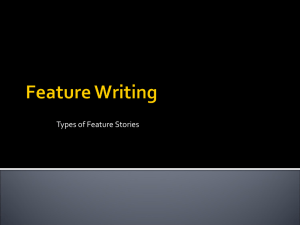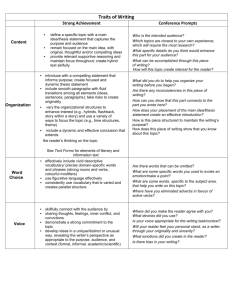Strategies for Peer Review - Saint Mary`s College of California
advertisement
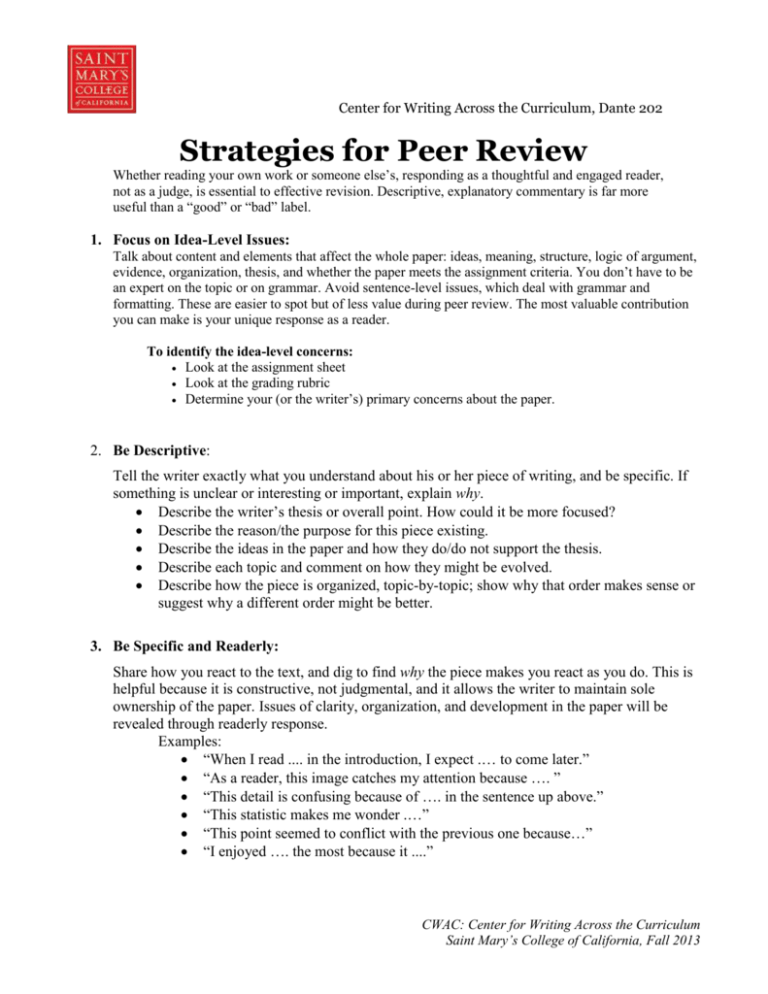
Center for Writing Across the Curriculum, Dante 202 Strategies for Peer Review Whether reading your own work or someone else’s, responding as a thoughtful and engaged reader, not as a judge, is essential to effective revision. Descriptive, explanatory commentary is far more useful than a “good” or “bad” label. 1. Focus on Idea-Level Issues: Talk about content and elements that affect the whole paper: ideas, meaning, structure, logic of argument, evidence, organization, thesis, and whether the paper meets the assignment criteria. You don’t have to be an expert on the topic or on grammar. Avoid sentence-level issues, which deal with grammar and formatting. These are easier to spot but of less value during peer review. The most valuable contribution you can make is your unique response as a reader. To identify the idea-level concerns: Look at the assignment sheet Look at the grading rubric Determine your (or the writer’s) primary concerns about the paper. 2. Be Descriptive: Tell the writer exactly what you understand about his or her piece of writing, and be specific. If something is unclear or interesting or important, explain why. Describe the writer’s thesis or overall point. How could it be more focused? Describe the reason/the purpose for this piece existing. Describe the ideas in the paper and how they do/do not support the thesis. Describe each topic and comment on how they might be evolved. Describe how the piece is organized, topic-by-topic; show why that order makes sense or suggest why a different order might be better. 3. Be Specific and Readerly: Share how you react to the text, and dig to find why the piece makes you react as you do. This is helpful because it is constructive, not judgmental, and it allows the writer to maintain sole ownership of the paper. Issues of clarity, organization, and development in the paper will be revealed through readerly response. Examples: “When I read .... in the introduction, I expect .… to come later.” “As a reader, this image catches my attention because …. ” “This detail is confusing because of …. in the sentence up above.” “This statistic makes me wonder .…” “This point seemed to conflict with the previous one because…” “I enjoyed …. the most because it ....” CWAC: Center for Writing Across the Curriculum Saint Mary’s College of California, Fall 2013 Center for Writing Across the Curriculum, Dante 202 4. Readerly Feedback: Do not tell the writer what to do, but rather share how you react to the text. Why readerly responses are beneficial: Allow the reader to give constructive feedback without being too mean (offensive) or too nice (not saying anything) Allow the writer to maintain ownership of her/his paper – the reader can give constructive feedback without taking over the writer’s paper Allow the reader to work with what s/he knows – the reader doesn’t have to be a writing expert to give readerly feedback. Can identify confusing parts. Can identify parts that are strong, interesting, compelling, and clear. 5. Descriptive and Specific Feedback: Tell the writer exactly which part of the text is confusing, (or interesting, compelling, repetitive, clear, easy to follow, or in need of clarification) and why it is so. If something is “unclear,” try to explain why. If something is illogical or doesn’t flow, why? The more specific, the better. Examples, for specificity: Examples: “I didn’t understand if you meant _______ or _________” “The big question I was left with was….” “The way this part was presented led me to this conclusion: ... Is that what you intended?” “This point seemed to conflict with this earlier part because …..” “I’m unclear about the main idea because idea X is emphasized here and idea Y is emphasized there. Also, the ending of the paper makes me think that only idea Y is important.” “I am confused because the introduction argues that we should lower the drinking age, but this statistic – that most alcohol-related car accidents involve people between the ages of 16 and 25 – makes me think that we should raise the drinking age.” “The organization is hard for me to follow because I expected the ideas in the first part of the thesis to come in the first few paragraphs, but they don't come until the middle of the paper.” “I think your idea about professors having power and students being vulnerable is really interesting, and I want to know more about it. Why are students vulnerable? Are some students more vulnerable than others? Can you include an examples of what you mean?” CWAC: Center for Writing Across the Curriculum Saint Mary’s College of California, Fall 2013
